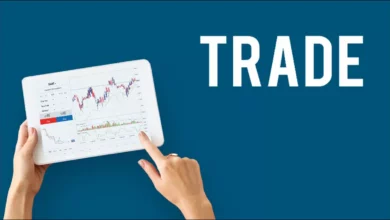What Are The Three Types Of Forex Traders?

Foreign exchange trading, also known as FX trading, is a decentralized market for forex traders who buy, sell and exchange foreign currencies. The primary motive of individuals and organizations that deal in forex trading is to make profits.
The forex market is a very wide and versatile market. Because of its decentralized nature, currencies are traded using the over-the-counter method. Over-the-counter trading is also known as off-exchange trading or pink sheet trading, and it is carried out by two parties without the interference of an exchange. It involves trading currencies through a forex trading network.
Another unique thing about forex is the ability to trade different currencies. For example, you can decide to trade two currencies like CNY/GBP. This implies the trading of the Chinese Yuan against the Great Britain Pounds Sterling. Forex trading is flexible because it enables the forex trader to trade against any currency that would eventually yield profits. In addition, the forex market has a low transaction cost which allows forex traders to deal in different currencies.
Unlike other markets, the forex market is driven by demand and supply, and there are different factors that contribute to it, like tourism, interest rates, etc. This creates volatility in the market, and traders try to look for opportunities to benefit from the daily changes.
Basic Forex Trading Tools
In order to trade forex, you would require knowledge about the market and some basic forex trading tools like:
- Brokerage Account: A brokerage account is a tool forex traders use to buy, sell and exchange currencies. A brokerage account allows you to deposit funds with a recognized brokerage firm. This firm in turn places the trade on behalf of the investor when he is ready to trade.
- Forex Market Hour: The forex market has a unique time in which trade opens for investment in a day. This forex market tool enables you to know when the forex market opens and closes. It also lets you know the current trading session and accurately converts the forex market hour into your local time zone.
- The Profit and Loss Percent Calculator: this tool helps the trader to access his performance in the market. The profit and loss calculator helps the trader to know the profit percentage and loss percentage and also helps the trader know his balance.
- The Pip Value Calculator: This tool enables you to know the current value of a pip. It accesses the value of pip in your account and help you manage your risk per trade.
- The Pivot Point Calculator: This particular tool analyzes the daily support, the weeky support and the monthly support and resistance level using the pivot points.
With the aid of these tools, you can have a smooth forex trading. At the same time, it will guide you while making informed decisions about the market.
Types Of Forex Traders
As a forex trader, it your responsibility to choose the style of trading that is best for you and a style of trading you can easily adapt to. This is because choosing a trading style that seem uncomfortable and unsuitable for you would put you at greater risk of blowing up your account.
The following are type of forex traders;
- The Swing Traders: A swing trader is an individual that invests in a trade and stay on that trade for several weeks. A swing trader might choose to open a trade and hold on to it for many weeks. A swing trader is not in a hurry to close a particular trade. Rather, he takes time to monitor the charts, trends and carefully analyzes the candle movement. Unlike the day traders who open a position at the beginning of the day and closes it at the end of the trading day, a swing trader sleeps over a particular trade so as to make a sound decision.
- The Scalp Traders: A scalp trader is one who resells currencies at a quick profit. They spend most of the day picking small amounts of pips as many times as they can through the course if the day. A scalp trader does not have the patience of waiting for a particular trade over a long period of time.
Because of the volatility of the market, there are price fluctuations which can accumulate profits or losses. The scalp trader sells off once he is making profits.
- Position Traders: The position traders are individuals who keep a trade open for weeks, months or even years. The position trader takes time to analyze a currency and invests in the currency once he is sure that the currency has potentials. Unlike the scalpers, the position traders are very patient with a trade. They do not get moved by the current price fluctuation of a currency. Rather, they wait patiently for a trade to do very well before they can close the trade.
To become a successful trader, a careful study of these trading styles can prove beneficial to you. You must choose a pattern that works well for you. Moreover, using a paper account to practice would help you adapt to your style and gives you an insight on how the market works.




